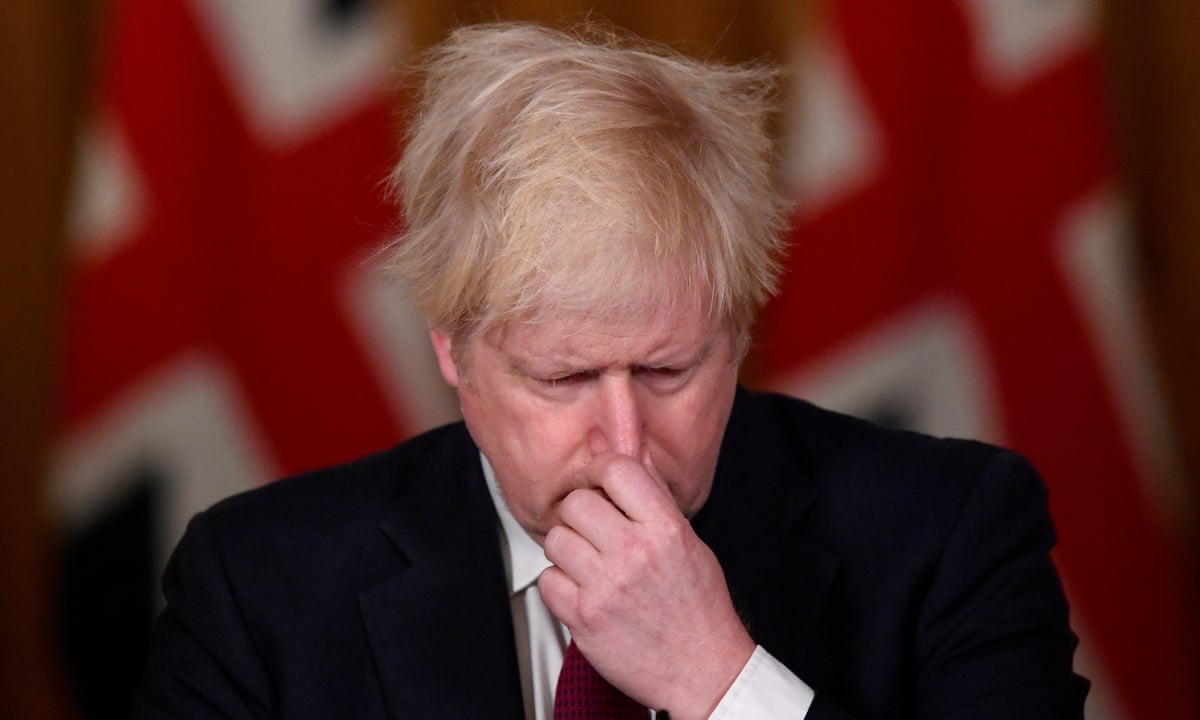
This crisis isn’t just for Christmas, but for months to come – Britain needs leadership
It’s the hope that gets you in the end. Had the nation been told at the beginning of December that Christmas wasn’t happening this year, then obviously it would have been a blow, but we’d have coped. Plenty of families had already made the mental leap towards staying at home, judging by the uneasy reaction to Boris Johnson’s initial promise of a super-spreader five days of mingling, and more could surely have been persuaded.
But no. Our leader’s Christmas gift to a nation already at the end of its tether was instead to get everyone’s hopes up and then stomp on them at the last minute, when families had spent money some couldn’t afford on food that won’t now get eaten and tickets that can’t be used. Unpack your bags, Prof Chris Whitty said, if you were planning to get away. Unravel your plans, uninvite the people you had let yourself look forward to seeing, unpick the stitches that were stopping some people coming apart at the seams. But miserable as all this is, recent events have blown a hole in rather more than a nation’s plans. This crisis isn’t just for Christmas, but for months to come.
Cynics may see news of a new, more contagious mutation in the virus as little more than political cover for yet another embarrassing but inevitable U-turn. It’s true that opposing, or even scientifically advising, this government must feel like shouting into an infinitely deep cave; you know it will have to echo your words eventually, but generally around a week too late. (Did Johnson really have no clue this was coming on Wednesday, when he ridiculed Keir Starmer for suggesting Christmas plans be cancelled?) But it’s unfair to dismiss pioneering scientific work so lightly. Scientists at the newly established Covid-19 Genomics UK consortium have worked fast and furiously to identify an important part of the explanation for why a lockdown – supposedly the one thing we know works – didn’t work so well in November, failing to buy as much time as had been hoped.
If this strain of the virus is 70% more contagious, and growing fast as a percentage of all cases, then we will need to work far harder to contain it. That raises the possibility of tactics that used to work now losing their effectiveness. Just as doctors have to increase the dose of morphine as a patient gets used to it, restrictions may need to be deeper or longer just to have the same effect. If so then we’re likely to be under the cosh for the rest of winter, spring, or however long it takes for vaccines to bring relief.
The crush at London train stations on the night the lockdown news broke suggests some have no intention of being trapped again. Already there is speculation about second-home owners hammering it out of the city to the Cotswolds, or Cornwall, or anywhere else that the new strain isn’t rife (but at this rate soon will be), half-thinking about where they want to hunker down for the long haul. This year has taught us that what other countries do is a more reliable guide to the future than what our own prime minister says, and one by one other European countries – not to mention Wales and Scotland – are heading for full national lockdowns.
It’s easy enough to sketch out what should happen now. First, Downing Street should stop pretending that Britain could cope with a no-deal Brexit on top of all this. You handle a virus with all the skill of a man panting after a bus he’ll never catch, and expect the world to believe you have hidden gifts for crisis management that you’ve mysteriously chosen not to use before? Oh please. Just do the damn deal; lift one worry off the nation’s shoulders, and free your cabinet to focus on the questions raised by a potentially very fast-moving stage of the pandemic.
Can schools realistically stay open throughout January in the worst-hit regions, and if not can exams still happen this summer? To put it politely, it seems unlikely that the mass testing system teachers have just been told to spend their Christmas holidays conjuring up from scratch, using staff who seem to exist largely in Gavin Williamson’s head, will be up and running in time to take the strain. Should students who have gone home for Christmas to places where the new mutation is rife really return this January to universities where it isn’t? Can the vaccine be rolled out faster or further? Economic forecasts will need revising, with retail and hospitality potentially needing fresh bailouts. And it would be madness now, given the likely consequences for jobs, to withdraw the pandemic benefit top-ups in April.
Yet all this requires a government capable of carrying first its mutinous backbenchers, and second an exhausted country, with it down a long hard road. It’s become a cliche to blame Johnson’s personal need to be loved for his inability to articulate unwelcome truths or make painful choices. But this small prime minister stands on the shoulders of smaller men, on whom he depends for a parliamentary majority more fragile than numbers suggest, and they, too, deserve a share of the blame. That hard Brexiters are so often also Covid-sceptics is no accident; the same reluctance to face reality, and the same stubborn conviction that if they shout loud enough then somehow they’ll prevail, underpins both ideologies. These are the people who put Johnson where he is now, and who could bring him down tomorrow. The country’s fate rests now on their capacity to change, or his ability to turn on them.

